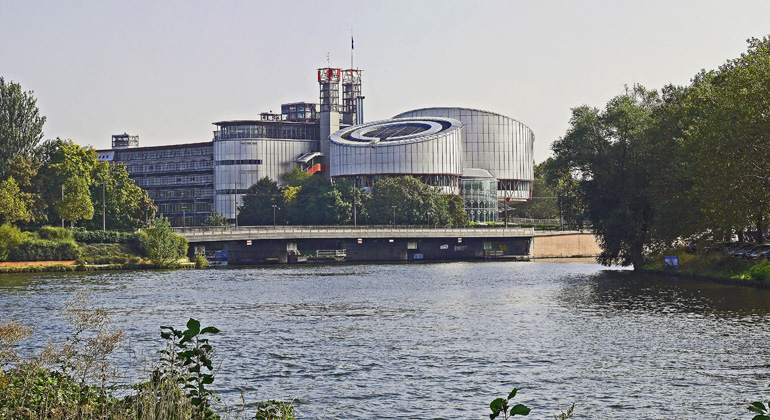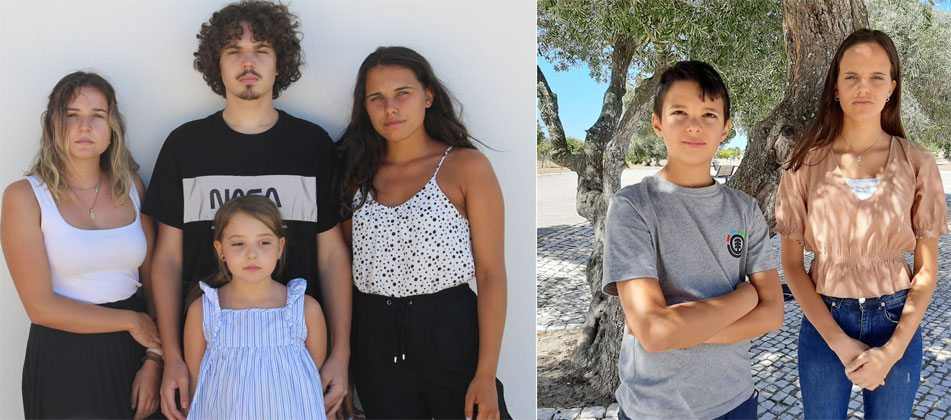Six children and young people against 32 governments
It’s about the most groundbreaking lawsuit ever.
The European Court of Human Rights was created after World War II to hold European governments accountable when they fail to protect human rights. Now six children and youth from Portugal are suing 32 European governments for their lax climate change policies. At stake is nothing less than the question of humanity’s survival.
It is now in Strasbourg one of the most spectacular and important trials of all time. Because never before have the human rights and the liberties of all future generations been in such danger as they are today. Young people are suing in the name of their future, not just one generation, but all generations.
Thousands of climate scientists agree with the plaintiffs
They warn of a global climate catastrophe. In the summer of 2023, we will experience extreme storms, forest fires halfway around the world, heat waves like never before, and extreme weather with temperatures of over 40 degrees in Germany, for example.
Is the chance already missed to stop global warming still at 1.5 degrees?
In 2022, there were already $270 billion worth of damage worldwide due to climate heating. And that’s just the beginning. We are currently heading for a warming of 3.5 degrees plus by the end of the century. Hard to quantify are the health damages millions of people suffer from heat waves and poor air quality. In addition, there will be thousands of deaths each year and millions of climate refugees in growing numbers. In China alone, over 600,000 people died prematurely in 2022 due to climate change. Preventive climate policy is the best, cheapest and most important social policy.
Can we still be saved?
Yes, according to the World Energy Council in Paris, and yes according to the majority of climate researchers. However, governments would have to at least triple the pace of expansion of renewable energies. The ruling of the European Court of Human Rights can also help save the day. Just as the ruling of the German Federal Constitutional Court helped back in 2021. The then Grand Coalition under Angela Merkel had to bring forward Germany’s climate neutrality from 2050 to 2045 in a law. Perhaps in the future the 32 European governments complained about (27 EU states, England, Turkey, Cyprus, Armenia and Georgia) will have to make similar or even more improvements.
So far, climate researchers have only been wrong about one thing: the catastrophe of climate warming is coming faster than scientists previously feared. We don’t have to make the complete switch to renewable energies by 2045, but by 2035. That’s feasible – Costa Rica and Iceland are already that far along, and Kenya in Africa wants to be that far along by 2030.
Climate grievances can achieve more than climate bickering. Whereby all forms of non-violent protest can be helpful. The TAZ comments, “What is needed is a diversity of protest.”
- “EUROPE to bi judged on Climate in Landmark Trial” – Six young Portuguese people bring climate case over violation of human rights. 32 European states appear at the European Court of Human Rights over failure to address the climate crisis.
- Youth4 Climate Justice 2023 | GlobalLegalActionNetwork – glan









